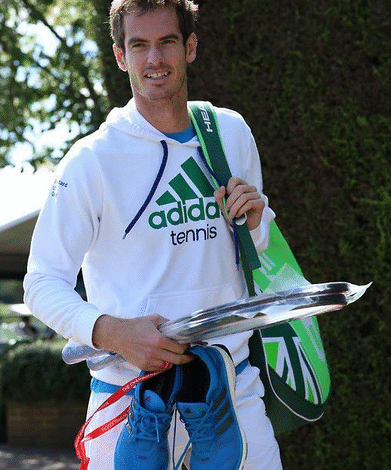Breaking the Curse: How Andy Murray Made History at Wimbledon 2013

For 77 agonizing years, Great Britain had longed for a men’s singles champion at Wimbledon. The weight of that history, the expectation, and the near misses had become a national obsession. Then came July 7, 2013, a day that finally saw the “curse” broken by a man who had carried the hopes of a nation on his shoulders: Andy Murray.
The setting was Centre Court, the opponent was his fiercest rival, Novak Djokovic, the world No. 1. This wasn’t just any final; it was a showdown between two of the “Big Four,” a test of wills that would determine not only a Grand Slam champion but also rewrite British sporting history. Murray, having endured a heartbreaking final loss to Roger Federer at Wimbledon just the year before, was more determined than ever.
The match itself was a masterclass of relentless hitting and incredible athleticism. Murray, fueled by the fervent home crowd, played with an intensity that matched Djokovic’s renowned defensive prowess. He took the first two sets 6-4, 7-5, putting him on the brink of history. But Djokovic, a warrior himself, fought back hard in the third set, going up a break and threatening to extend the contest.
Then came the final, agonizing game. Serving for the championship at 5-4 in the third set, Murray held three championship points, only for Djokovic to claw them back, then earn three break points of his own. The tension was unbearable, a microcosm of 77 years of British tennis agony. But Murray, through sheer mental fortitude and a string of incredible saves, withstood the onslaught. On his fourth championship point, after a grueling rally, Djokovic netted a backhand, and the roar that erupted from Centre Court was seismic. Murray had done it.
He collapsed to the turf, tears of relief and joy streaming down his face. “Breaking the Curse” was more than just a victory; it was an emotional release, a moment of collective triumph that finally ended Britain’s decades-long Wimbledon drought and cemented Andy Murray’s place as a national hero.



